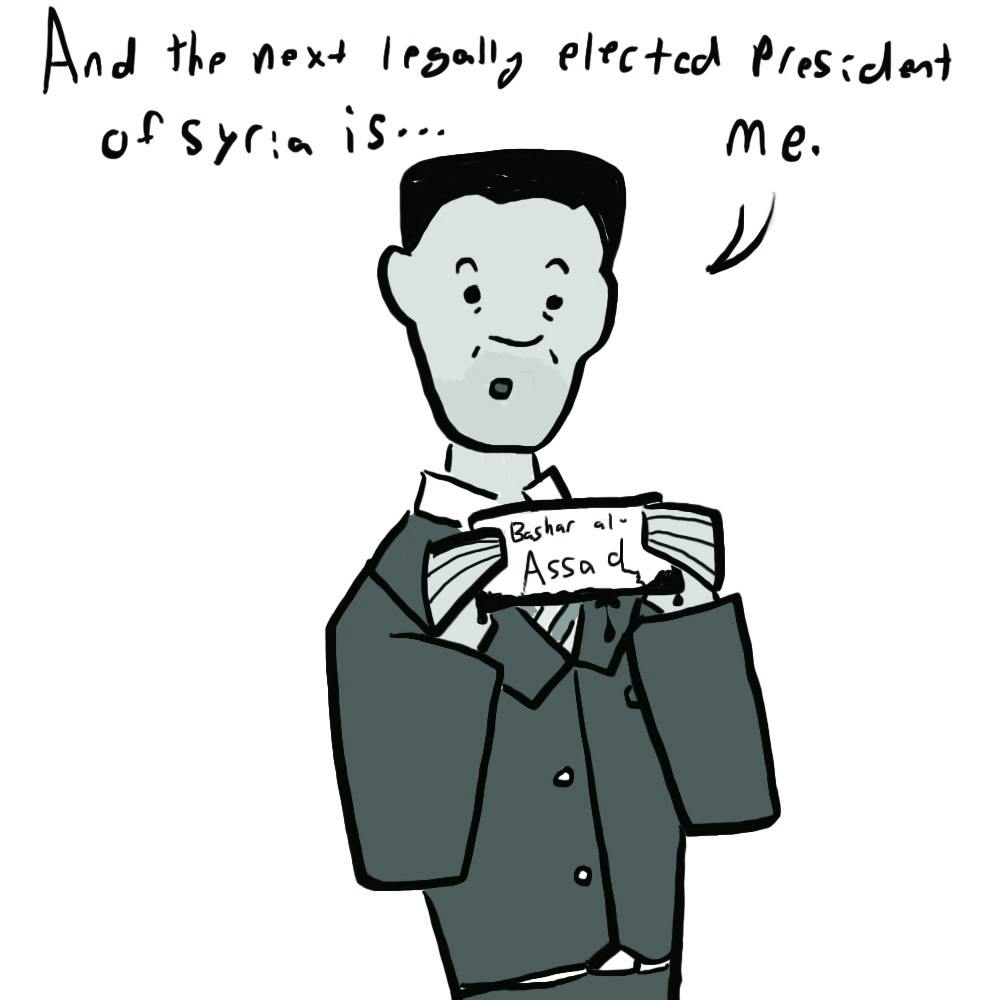For Americans, the election has seemed like a meeting of reality television and partisan politics.
But for those who live in a country like Syria, elections bring a different set of problems.
In the wake of the violence of the Syrian Civil War, the citizens expressed their unrest and desire to make a difference through the massive turnout with long waiting hours for their parliamentary elections last week.
The choices were many and, at first glance, seemed to offer a wide variety of choices: more than 3,500 candidates, male and female, from across the country were running for 250 parliamentary positions.
The voter turnout was over 57 percent of the population, reported Central China Television. This statistic is close to the United States’ 2012 general election voter turnout of 55 percent the Bipartisan Policy Center reported.
Despite this, the U.S. Department of State refuses to believe the results of the election were credible, said Mark Toner, deputy spokesman for the department.
“To hold parliamentary elections now given the current circumstances, given the current conditions in the country, we believe is at best premature and not representative of the Syrian people,” Toner said in a press briefing last Monday.
We, the Editorial Board, support the democratic and liberal ideals and practices of the election on the grounds that those actions move the country toward a louder voice for its people.
We regard the views of the U.S. toward the parliamentary elections with skepticism and respect the rights of the Syrian citizens to choose their own leader.
We believe the Department of State’s views of the Syrian election aren’t motivated by the principles our nation should stand upon when it comes to respecting the liberties and sovereignty of foreign nations.
Not even mentioning the arrogance of the U.S. to make such a bold claim about another nation’s political process, the absence of citizens who have fled Syria does not delegitimize the voices and political involvement of those citizens in the country.
Those absent citizens are not affected by the elected officials in the same way as those who are in the country.
The need to make democratic progress should outweigh the concern that not every Syrian citizen is currently residing in the country.
The Department of State argues that it is too soon, given the bloodshed and turmoil in Syria, to have a credible election.
With the number of people absent and the political climate, an election wouldn’t represent the voice of the people properly.
But this sentiment goes against Bush’s claim that the 2005 Iraqi Parliamentary elections were a “major milestone” despite the looming threat of Al-Qaida.
The Syrian people represent themselves.
They don’t need anyone from outside to tell them this is right or wrong,” one Syrian voter said in an interview with Russia Times.
Put simply, the growth and progress of Syrian democracy don’t need the approval of other nations as long as they adhere to those democratic principles.
The elections have their limitations, but Syria is moving in the right direction.
The U.S. can respect it or become the tyrannical monarch it once fought against.




